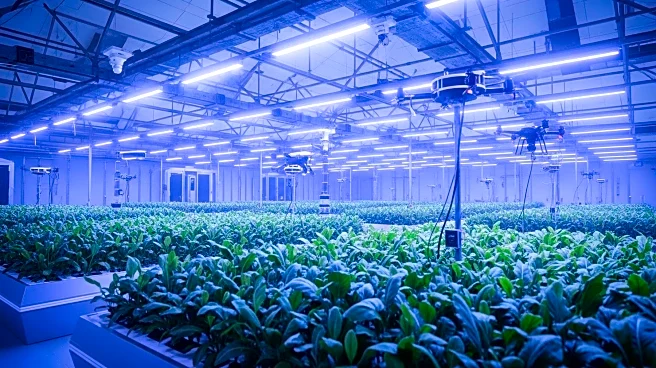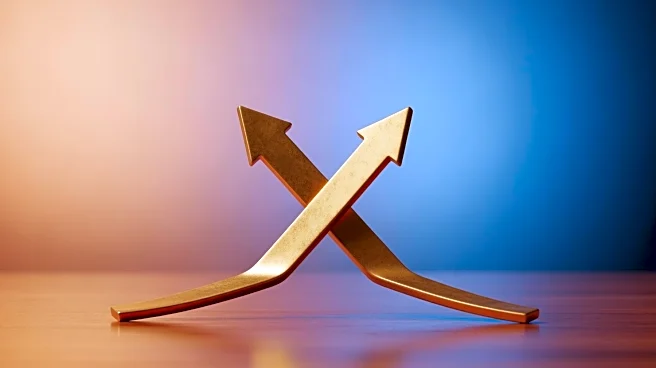What is the story about?
What's Happening?
The agriculture industry is increasingly adopting digital technologies to enhance crop management and address challenges posed by climate change and rising global food demand. Advanced tools such as soil and weather sensors, UAV drones, and artificial intelligence are providing farmers with real-time data and insights to optimize irrigation, fertilization, and pest control. These technologies aim to improve resource efficiency, reduce waste, and increase yields, offering a strategic advantage in a volatile agricultural landscape.
Why It's Important?
The integration of digital technologies in agriculture is crucial for meeting the growing global food demand while managing environmental impacts. By leveraging data-driven insights, farmers can make informed decisions that enhance productivity and sustainability. This shift towards smarter agriculture has the potential to transform traditional farming practices, improve food security, and support economic growth in rural areas. However, the successful adoption of these technologies requires balancing technological capabilities with human expertise.
What's Next?
As digital agriculture continues to evolve, farmers will need to integrate these technologies into existing systems to maximize their benefits. The development of user-friendly and automated solutions will be key to widespread adoption. Policymakers and industry stakeholders will play a role in supporting this transition through investments in infrastructure and education. The future of agriculture will likely involve a combination of advanced technology and traditional knowledge to achieve sustainable outcomes.
















